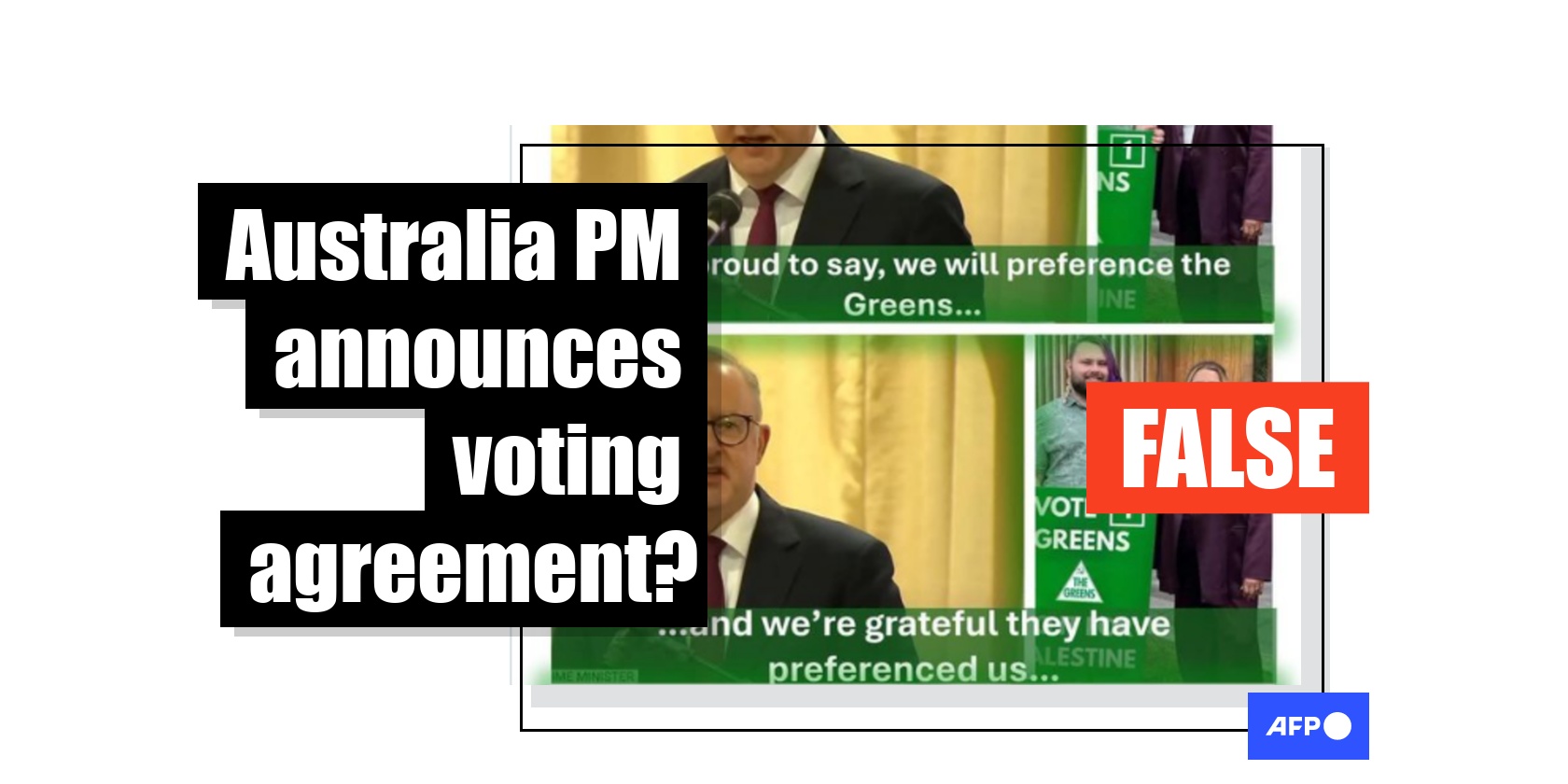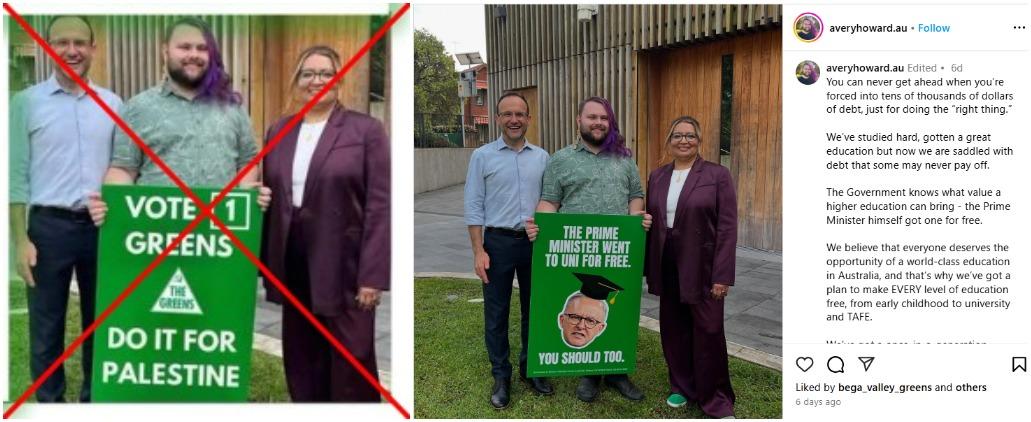
Fabricated Albanese quote about Labor-Greens preference deal misleads online
- Published on May 2, 2025 at 10:28
- 3 min read
- By Ara Eugenio, AFP Australia
Australian Prime Minister Anthony Albanese did not announce a nationwide preference deal between his ruling Labor Party and the Greens, contrary to claims in posts shared ahead of the May 3 elections. Labor and Greens candidates have recommended voters "preference" the other party -- rank them second on their ballots -- but the false claim circulating online uses images overlaid with fabricated subtitles.
Images of incumbent Australian premier Anthony Albanese overlaid with subtitles that read "We're proud to say we will preference the Greens" were shared in an X post from April 23, 2025.
The overlaid subtitles also claim Albanese said: "We're proud they have preferenced us... they stand for a lot of what I believe in."
Australia's preferential voting system requires the victorious candidate in each constituency to win a majority of the total vote (archived link).
Voters are required to place a number next to the name of each candidate on the ballot, with "1" representing their most favoured candidate. If no candidate receives more than 50 percent of the vote, candidates with the fewest number of "1" votes are progressively eliminated until only the two most popular candidates remain.
Parties that "preference" another party are asking voters to rank the other party higher on the ballot, and will often issue "how-to-vote" cards suggesting a recommended order to influence the flow of votes especially in tight races.

Similar posts circulated across social media in the run-up to the tightly contested May 3 national elections, with Albanese's centre-left Labor Party holding a narrow lead in the polls over the conservative opposition headed by Peter Dutton (archived link).
Comments on the posts suggest some users believed the purported comments indicated that Albanese had reneged on earlier comments ruling out the possibility of forming a government with the Greens (archived here and here).
"This shows Albo has no morals or integrity," one user said.
Another commented: "Lied every single time he was asked that very question."
While Labor and Greens candidates have preferenced each other in local races, the subtitles overlaid on the images have been fabricated.
Political experts also told AFP that such deals are not unusual, and have no bearing on governance arrangements after the election.
Australia fact-checking organisation AAP Fact Check has also previously debunked the claims (archived link).
February fundraiser
A reverse image search on Google led to footage of Albanese speaking at a fundraiser in Dapto, a suburb in New South Wales, on February 21, which was posted by Sky News Australia on YouTube (archived link).

Albanese used his speech to thank an outgoing official and to rally support for his government ahead of the upcoming elections, without mentioning the Greens or any preference deals (archived link).
The image of Greens party members used in the false post was also altered.
A separate reverse image search led to an April 23 Instagram post by Avery Howard, the Greens' candidate for the NSW division of Fowler (archived link).
The photo shows Howard standing between Greens leader Adam Bandt and deputy leader Senator Mehreen Faruqi while holding a sign that reads: "The prime minister went to Uni for free. You should too."

'Little bearing' on governance
While Labor has directed voters to preference the Greens in many electorates, including Albanese's home division of Grayndler, this does not apply uniformly across all seats (archived link).
Paul Williams, an associate professor at Griffith University, told AFP the exchange of preferences between parties should not be viewed as unusual, particularly for parties like the Greens and Labor, which "share some ideological ground".
"There's nothing evil, wicked, or untoward about preference exchanges. That's just how politics works," he said on April 30.
Political scientist Jill Sheppard of the Australian National University separately told AFP: "Parties usually negotiate preference deals at the federal level, but they take into account local issues and candidates where relevant."
But it was "important to emphasise that this doesn't predict anything about potential governance arrangements in a hung parliament -- those conversations, if necessary, will not be affected by earlier preference deals," she said on April 29.
AFP has fact-checked other misinformation related to the Australian election here, here and here.
Copyright © AFP 2017-2026. Any commercial use of this content requires a subscription. Click here to find out more.
Is there content that you would like AFP to fact-check? Get in touch.
Contact us
